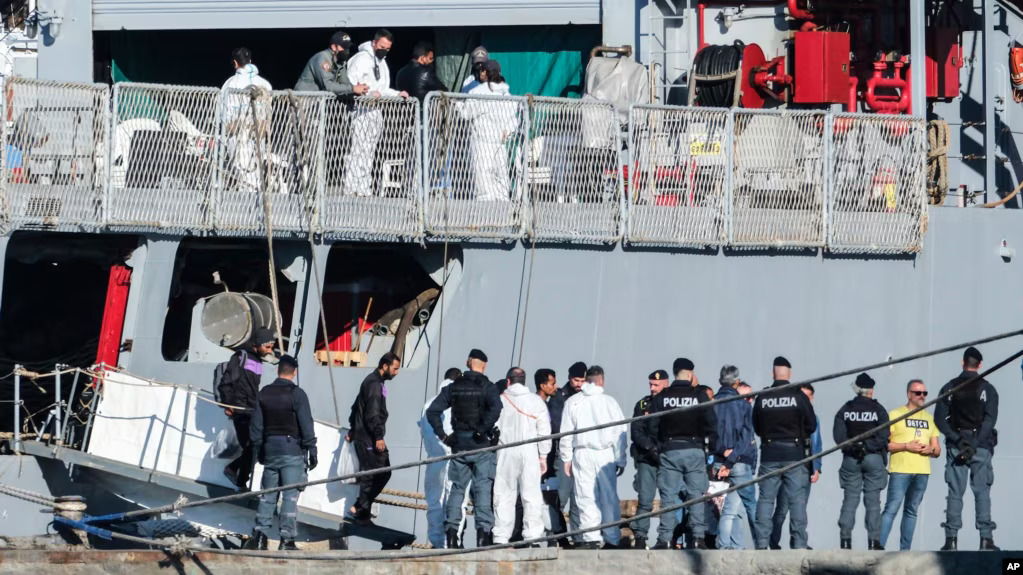Italy has resumed transferring migrants rescued in the Mediterranean to processing centers in Albania, despite ongoing legal and humanitarian concerns. On Sunday, officials confirmed that 49 migrants aboard the navy vessel Cassiopea were en route to the Albanian port of Shengjin, expected to arrive Tuesday morning. This marks the third such transfer under a controversial agreement between Italy and Albania.
The Italian Interior Ministry reported that 53 other migrants avoided transfer by presenting valid passports, expediting their processing. For those whose nationalities are confirmed, Italy uses a fast-track procedure to repatriate individuals deemed ineligible to apply for asylum in the European Union. However, this process has faced criticism and legal scrutiny.
Italian courts have refused to validate the detention of migrants at the Albanian centers, citing concerns over the agreement’s legality. These cases have been referred to the European Court of Justice, which previously ruled that asylum seekers cannot undergo fast-track repatriation if their home countries are not considered entirely safe. The European court is set to hear the case on February 25.
Premier Giorgia Meloni’s government has vowed to fully reactivate the two centers in Albania, which have remained underutilized due to court challenges. Italy’s highest court recently ruled that judges cannot override government policies on determining safe countries for repatriation, though lower courts can still assess individual cases.
The Albanian centers, operational since October, were designed to house up to 3,000 male migrants monthly. Italy has allocated €650 million over five years to fund the initiative. However, human rights groups and NGOs have strongly criticized the agreement, calling it a dangerous precedent that undermines international laws protecting asylum seekers.
Premier Meloni has defended the plan, emphasizing its support from European leaders as part of broader efforts to manage migration outside EU borders. Despite this backing, the initiative remains contentious, with critics warning of potential human rights violations and legal conflicts.
Italy’s migrant processing strategy depends on the European Court’s upcoming decision. Meanwhile, the debate continues, focusing on the challenges of balancing migration management with legal and humanitarian responsibilities.

